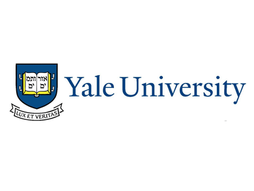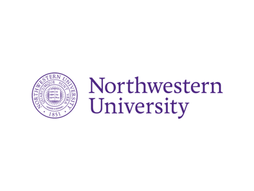10 Computer Science Summer Programs for Middle School Students
Computer science summer programs for middle school students are an excellent way to explore technology and programming at an early age. These programs offer hands-on learning experiences, introduce emerging technologies, and help you develop problem-solving and coding skills. By participating in these programs, you can set a strong foundation for your high school journey and other pre-college opportunities.
For those interested in tech, innovation, or even business, these programs provide skills like logical thinking and data analysis. To get started, we’ve curated a list of 10 computer science summer programs for middle school students that combine projects with real-world applications, helping you unlock your potential in the tech field.
If you’re interested, we've covered a host of free, online, paid, and region-specific research opportunities and internships for middle school students here.
Location: Virtual
Cost: $2,400 (Financial aid is available)
Acceptance Rate: There are no set acceptance numbers. However, you can expect some degree of selectivity.
Application Deadline: Varies according to cohort. The spring cohort deadline is February 9
Eligibility: Students in grades 6-8
The Lumiere Junior Explorer Program provides middle school students an opportunity to dive into subjects like biology, computer science, and mathematics. You will engage in small research projects, exploring your chosen track and working directly with PhD candidates from top universities like Harvard and Stanford.
The fully virtual program emphasizes critical thinking, problem-solving, and scientific methodologies through real-world experiments and mentorship. Students conclude the program by presenting their findings. Financial aid is available for eligible students, ensuring accessibility to this rigorous program.
Location: Virtual
Cost: Starting from $2,079; Limited scholarships are available
Cohort Size: 40 students on average
Dates: July 14 – August 1
Application Deadline: Rolling
Eligibility: Middle school students aged 12 – 14 years or 15 – 18 years (cohort-dependent)
The UC Berkeley Coding Academy’s Data Science to AI is a summer program for students offering personalized 1-on-1 and small-group classes. The program covers Python coding, machine learning (ML), AI fundamentals, and big data.
You will create real-world projects, stunning data visualizations, and machine-learning models with concepts tailored to their experience level. Participants will receive a Data Science Scholar Certificate and access to annotated coding notebooks. Cohorts are small (average of six students) and provide collaborative research opportunities alongside 1-on-1 guidance.
Location: Virtual
Cost: $1,990 (Need-based financial aid is available)
Acceptance Rate: There are no set acceptance numbers. However, you can expect some degree of selectivity.
Dates: 25 hours over 10 weeks (on weekends) during the spring cohort and 25 hours over 2 weeks (on weekdays) during the summer cohort. The spring program will run from March 9 to May 11 this year. Check more details here.
Application Deadline: Multiple cohort. The spring cohort deadline is February 23.
Eligibility: Students in grades 6-8
The AI Trailblazers program by Veritas AI is a virtual program that teaches middle school students the fundamentals of artificial intelligence and machine learning. Over 25 hours, you will learn the basics of Python as well as topics like data analysis, regression, image classification, neural networks, and AI ethics. Students learn through lectures and group sessions with a 5:1 student-to-mentor ratio. Previous projects done by students have included building a machine-learning model to classify music genres and creating a machine-learning algorithm to provide a custom list of educational resources based on selected specifications.
Location: NYU Tandon School of Engineering, Brooklyn, NY
Cost: No cost.
Acceptance Rate: NA
Dates: July 7 – August 8
Application Deadline: April 15
Eligibility: Students who are NYC residents and 12 years old by the start of the program but not older than 14 can apply.
The Science of Smart Cities (SoSC) program engages middle school students in engineering, computer science, and technology to develop solutions for sustainable and safer cities. You will work in teams, using coding, electronics, microcontrollers, sensors, and other hardware to design innovative projects.
The curriculum combines hands-on activities and STEM-focused coursework, covering topics like urban/environmental science, energy, and physical sciences. As a participant, you will present your final projects, showcasing creative solutions to real-world challenges, with guidance from research inspired by NYU Tandon’s work in smart technologies and engineering disciplines.
Location: UC Berkeley
Cost: $1,465 (Financial aid is available)
Acceptance Rate: NA
Dates: Session 1: June 23 – June 27 | Session 2: July 7 – July 11 | Session 4: July 21 – July 25
Application Deadline: For session 1: June 16 | For other sessions: June 29
Eligibility: Students entering grades 7 to 9.
This program introduces middle school students to the intersection of coding and space exploration. You will use block-based coding to design and program model satellites, solving engineering challenges and exploring the solar system's complexities. Those with prior coding experience in Python or JavaScript can tackle more advanced challenges.
The program emphasizes iterative design, creative problem-solving, and real-world applications of coding. The week concludes with you building and coding your own imaginative model satellite and sharing your projects with parents on the final day.
Location: University of Pennsylvania campus, Philadelphia, PA
Cost: $650 (need-based financial assistance is available)
Acceptance Rate: Moderately low
Dates: June 23 – June 27
Application Deadline: March 3
Eligibility: Students entering 7th, 8th, or 9th grade next Fall from Philadelphia and have at least a B average.
The Penn GEMS Summer Camp is a week-long computer science summer program for middle school students, emphasizing engineering, math, and science. Open to students in 7th–9th grade within a 60-mile radius of Penn's campus, the camp offers hands-on exploration in bioengineering, nanotechnology, robotics, materials science, and more.
You will collaborate in groups, engage with Penn doctoral and master’s students as mentors, and tackle real-world challenges. Activities include Glow in the Dark Science, robotics, animation, and computational projects, fostering teamwork and critical problem-solving skills.
Location: NYU Tandon School of Engineering, Brooklyn, NY‘
Cost: No cost
Acceptance Rate: Though the exact numbers are unknown, the SONYC program is highly selective.
Dates: July 8 – August 1
Application Deadline: April 15
Eligibility: NYC residents age 12 to 14.
The Sounds of New York City (SONYC) program at NYU is a three-week summer program for middle school students, focusing on urban noise pollution and its public health impacts. This program will deepen your knowledge of engineering, physical and computer sciences, and natural phenomena like waves and sound.
You’ll work on hands-on projects using sensors, microcontrollers, and circuits to study sound waves and build devices for noise monitoring and mitigation. The program integrates STEM skills like coding, electronics, and engineering with a theater-based component, Irondale, enhancing public speaking and communication skills through improvisation.
Location: Virtual
Cost: $1,990 (limited scholarships available)
Acceptance Rate: Moderately low
Dates: June 23 – August 1
Application Deadline: June 11
Eligibility: 8th-12th (ages 13-18) graders can apply.
The MehtA+ Machine Learning Bootcamp is a 6-week virtual program designed for 8th–12th graders interested in data science, AI, and machine learning. Led by MIT and Stanford engineers, the boot camp covers topics like AI models, data preprocessing, and coding with tools like Python, TensorFlow, and PyTorch.
You will work on interdisciplinary projects in fields such as medicine and economics, culminating in a research paper and poster presentation at the annual conference, with the potential for publishing.
Location: UCSD Division of Extended Studies University City Center
Cost: $275
Cohort Size: There are no set acceptance numbers.
Dates: July 7 – July 11
Application Deadline: Rolling
Eligibility: Any middle school students
The Sally Ride Science Academy at UC San Diego provides engaging STEAM workshops for grades 3–12, covering topics from robotics and engineering to filmmaking and financial literacy.
For students interested in computer science, the "Middle School: Raspberry Pi" course offers hands-on experience with Raspberry Pi, Python programming, and real-world applications of coding. As a participant, you will learn Python scripting and basic electronics while working with Raspberry Pi to build real-world applications like a dimmer switch, intruder alarm, drum set, and more. This course develops foundational programming and app design skills.
Location: Virtual
Cost: Free to audit; $219 for a verified certificate
Cohort Size: There are no set acceptance numbers
Dates: 11 weeks long (self-paced)
Application Deadline: Rolling
Eligibility: Anyone interested in programming can join the program.
CS50x: Introduction to Computer Science is a self-paced, project-based course adapted from Harvard’s popular on-campus CS50 program. It covers C, Python, SQL, JavaScript, HTML, and CSS, focusing on computational thinking, algorithms, and efficient problem-solving. Weekly lectures, problem sets, and projects teach topics like abstraction, data structures, and software engineering.
The course culminates in a final project, allowing you to explore a personal interest. Participants who complete assignments and the final project with satisfactory scores can earn a certificate (optional fee required). Classes are delivered via edX.
Stephen is one of the founders of Lumiere and a Harvard College graduate. He founded Lumiere as a PhD student at Harvard Business School. Lumiere is a selective research program where students work 1-1 with a research mentor to develop an independent research paper.
Image Source - Harvard Logo









